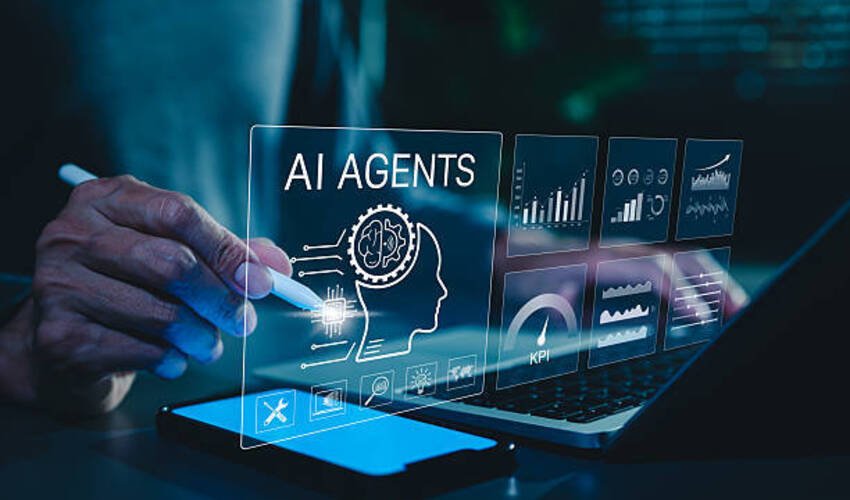AI agents are transforming the way people interact with brands. They no longer just answer questions—they understand goals, anticipate needs, and act on behalf of customers to solve problems more efficiently and accurately. AI agents transform customer experience by combining automation, personalization, and real-time decision-making to deliver faster service at lower cost while improving satisfaction.
These intelligent systems interpret intent instead of waiting for commands. They analyze data, learn from each interaction, and adapt to individual preferences. As a result, customers receive more relevant support, smoother transactions, and consistent service across every channel.
The technology behind AI agents continues to mature, connecting advanced algorithms with natural interfaces such as voice and visual input. This shift allows companies to create effortless experiences that feel more human and less mechanical. The following sections explore how this transformation happens and what makes AI agents so effective in redefining customer experience.
How AI Agents Transform Customer Experience
AI agents reshape how companies interact with customers by combining automation, context awareness, and adaptive learning. They handle tasks that once required human input, respond faster, and deliver more accurate information across multiple channels. This shift improves satisfaction, reduces wait times, and allows human teams to focus on complex or high-value issues.
From Traditional Chatbots to Agentic AI
Traditional chatbots rely on scripted responses and limited keyword triggers. They often fail when customers ask questions outside preset rules, leading to frustration and repeated handoffs to human agents.
Agentic AI changes this model. It applies natural language understanding and real-time reasoning to interpret intent, not just words. This allows it to hold more natural conversations and complete tasks without constant supervision.
Unlike basic chatbots, agentic systems can modify orders, process refunds, or update account details directly. They also learn from each interaction, which helps them improve accuracy over time. Companies that use development partners such as Azumo can design agents tailored to specific workflows, making automation more practical and effective for real-world service operations.
Improving Customer Interactions with AI
AI agents deliver faster and more precise responses by connecting to live business data. They can check order status, adjust reservations, or provide technical support in seconds. This reduces the need for customers to repeat information or wait for manual updates.
They also maintain consistency across channels. Whether a customer reaches out through chat, voice, or email, the agent accesses the same data and applies the same logic. This creates a unified experience that feels smooth and dependable.
In addition, AI agents can detect tone or urgency in messages. They escalate sensitive cases to human staff when needed, which helps balance automation with empathy. The result is a more efficient and human-like interaction that builds trust over time.
Personalization and Hyper-Personalization
AI agents use data from past interactions, purchase history, and preferences to tailor responses. They can greet customers by name, recall previous issues, and suggest relevant products or solutions. This level of personalization helps customers feel understood and valued.
Hyper-personalization goes further. It combines behavioral data with predictive models to anticipate needs before a customer asks. For example, an AI agent might suggest a service renewal based on usage patterns or alert a user about a potential issue before it occurs.
These predictive capabilities reduce friction and make interactions proactive rather than reactive. As a result, businesses can deliver support that feels timely and relevant without increasing workload or cost.
Seamless Integration Across Customer Journeys
AI agents connect with multiple business systems such as CRM, billing, and logistics platforms. This integration allows them to access up-to-date information and complete transactions end-to-end. Customers can check delivery status, modify bookings, or request refunds without switching between tools.
By working across departments, AI agents create a continuous flow of information. Each interaction feeds data back into the system, improving future responses and recommendations.
This connected approach shortens resolution times and reduces errors. It also gives companies a clearer view of customer behavior across touchpoints, helping them improve service design and operational efficiency.
What Makes AI Agents So Effective in Customer Experience
AI agents improve customer service by automating tasks, predicting needs, and providing accurate, context-aware support. They help businesses reduce response times, increase satisfaction, and build long-term loyalty through data-driven insights and seamless collaboration between humans and machines.
Operational Efficiency and Automation
AI agents increase operational efficiency by handling repetitive service tasks such as processing returns, updating account details, or scheduling appointments. These tasks often consume a large share of an agent’s time, which limits their ability to focus on complex issues.
Automation allows companies to manage higher volumes of requests without adding more staff. This reduces costs and shortens wait times for customers.
Unlike basic chatbots, AI agents use natural language processing and business data to understand intent and take action. They can complete full workflows instead of providing static responses. As a result, employees face less stress and customers receive faster, more accurate support.
This balance of automation and human oversight helps maintain quality while improving productivity across service operations.
Predictive Analytics and Proactive Support
AI agents use predictive analytics to anticipate customer needs before problems appear. By analyzing past interactions, purchase patterns, and sentiment data, they can identify early signs of dissatisfaction or churn.
This proactive approach allows companies to reach out with solutions, discounts, or helpful information at the right moment. For example, an AI system might detect frustration in a message and route the case to a live agent immediately.
Predictive tools also help adjust service priorities. Customers with urgent or high-value issues receive faster attention, while routine requests stay automated.
These insights turn customer service from reactive problem-solving into a forward-looking process that prevents issues and builds trust.
Customer Retention and Loyalty
Customer retention depends on consistent, positive experiences. AI agents contribute by delivering accurate information, personalized recommendations, and quick resolutions.
They reduce customer churn by maintaining context across every interaction. A returning customer does not need to repeat details, which saves time and increases satisfaction.
AI tools also track sentiment over time. If sentiment scores drop, the system can alert managers to intervene before a customer leaves.
By combining speed, personalization, and emotional awareness, AI agents help businesses strengthen loyalty and extend customer lifetime value.
Empowering Self-Service and Human-AI Collaboration
AI agents make self-service more effective by guiding customers through multi-step solutions without confusion. They can detect tone and adapt responses to keep the conversation natural and supportive.
Customers gain control and independence, which improves satisfaction and reduces frustration. At the same time, human agents focus on complex or sensitive cases that require empathy and judgment.
This collaboration creates a balanced service model. AI handles routine processes, while humans manage exceptions and build relationships.
The result is a smoother, more efficient customer experience where both technology and people contribute their strengths.
Conclusion
AI agents now play a key role in how companies serve and understand their customers. They simplify complex tasks, reduce delays, and help teams focus on meaningful interactions rather than repetitive work. As a result, businesses can provide faster, more accurate, and more personal support.
These systems also adapt to changing customer needs through data-driven insights. They identify patterns, predict preferences, and help organizations make smarter decisions about service design and delivery.
The most effective AI agents combine automation with empathy. They support human teams rather than replace them, creating a balanced approach that improves both efficiency and satisfaction.
As technology continues to progress, companies that use AI agents responsibly will likely see stronger relationships, smoother operations, and more consistent customer experiences.
Read Dive is a leading technology blog focusing on different domains like Blockchain, AI, Chatbot, Fintech, Health Tech, Software Development and Testing. For guest blogging, please feel free to contact at readdive@gmail.com.





